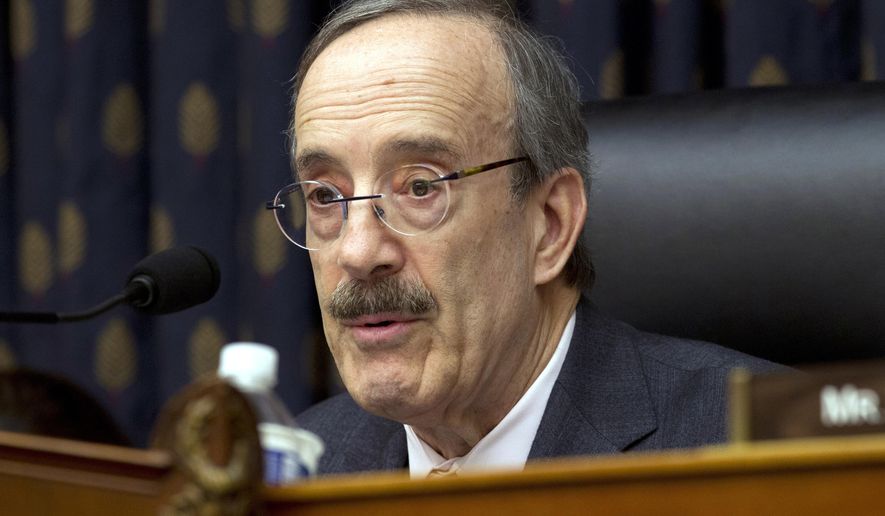The White House quietly released its formal justification for the Jan. 3 drone strike that killed a top Iranian general near Baghdad’s airport, but the argument failed to satisfy skeptics on Capitol Hill who say the reasons for the attack keep shifting and the legal theory authorizing the mission was, in the words of one powerful Democratic House chairman, “absurd.”
In the legally mandated report, the administration appeared to drop claims made by some immediately after the attack that Iranian Maj. Gen. Qassem Soleimani, who was meeting with Iraqi Shiite militia leaders when he was killed, posed an “imminent threat” and was planning new attacks on U.S. troops, allies, and even, according to President Trump, four unnamed U.S. embassies.
The killing sent tensions soaring in the region, sparking an Iranian counterstrike on U.S. troops inside Iraq, and fueled a move on Capitol Hill — backed by at least some Republicans — to curb Mr. Trump’s ability to start a war with Iran without congressional authority.
“The administration’s explanation in this report makes no mention of any imminent threat and shows that the justification the president offered to the American people was false, plain and simple,” House Foreign Affairs Committee Chairman Eliot Engel, New York Democrat, said in a statement. “This spurious, after-the-fact explanation won’t do.”
In the report, the White House said President Trump “directed this action in response to an escalating series of attacks in the preceding months by Iran and Iran-backed militias.”
“The purpose of this action were to protect United States personnel, to deter Iran from conducting or supporting further attacks against United States forces and interests, and to end Iran’s strategic escalation of attacks on, and threats to United States interests,” the report continued.
The administration maintained the strike was conducted in self-defense and was in line with the president’s powers as commander-in-chief.
Secretary of State Mike Pompeo is set to testify before the House Foreign Affairs Committee at the end of the month on the strike, after having previously rejected the committee’s calls for a public hearing.
Last month, lawmakers emerged from closed-door briefings by administration officials sharply divided on the White House’s reasoning, and many still say the White House and Pentagon have still not adequately informed lawmakers about the details surrounding the move.
Many Republicans have rushed to the defense of Mr. Trump, noting Soleimani’s long record leading Iranian and proxy forces that have clashed with the U.S. and its allies. The attack, they say, took out a known terrorist.
The strike “was not some reckless act,” Senate Majority Leader Mitch McConnell said last week. “It was a calculated and limited response to a significant, growing threat of attack against U.S. personnel in Iraq by an emboldened adversary.”
Mr. McConnell told Fox News on Thursday that he and many Republicans cheered President Obama for the 2011 mission — carried out without congressional notification — that killed al Qaeda founder and leader Osama bin Laden, contrasting that with the partisan reaction of Democrats to Mr. Trump’s Soleimani decision.
But eight Senate Republicans ignored President Trump’s threats and supported a war powers resolution this week in reaction to the Iranian airstrike.
Sen. Tim Kaine, Virginia Democrat and the resolution’s prime sponsor, echoed many Democrats who say Mr. Trump stretched a post 9/11 military force authorization passed by Congress out of all recognition to justify the January Baghdad attack.
The resolution, which would require the executive branch to end any military hostilities in Iran within 30 days and obtain express congressional approval to carry out further action, is expected to pass the House in coming weeks, but faces a near-certain presidential veto.
Liberal legal scholars also questioned the administration’s report justifying the attack and its timing.
“The administration’s position appears to boil down to an assertion that it can use military force against Iran without going to Congress even if responding to a threat from Iran that is not urgent or otherwise imminent,” Ryan Goodman, a New York University law professor and former special counsel to the Pentagon’s general counsel under President Obama, wrote in an analysis on the website Just Security.
• Lauren Toms can be reached at lmeier@washingtontimes.com.




Please read our comment policy before commenting.